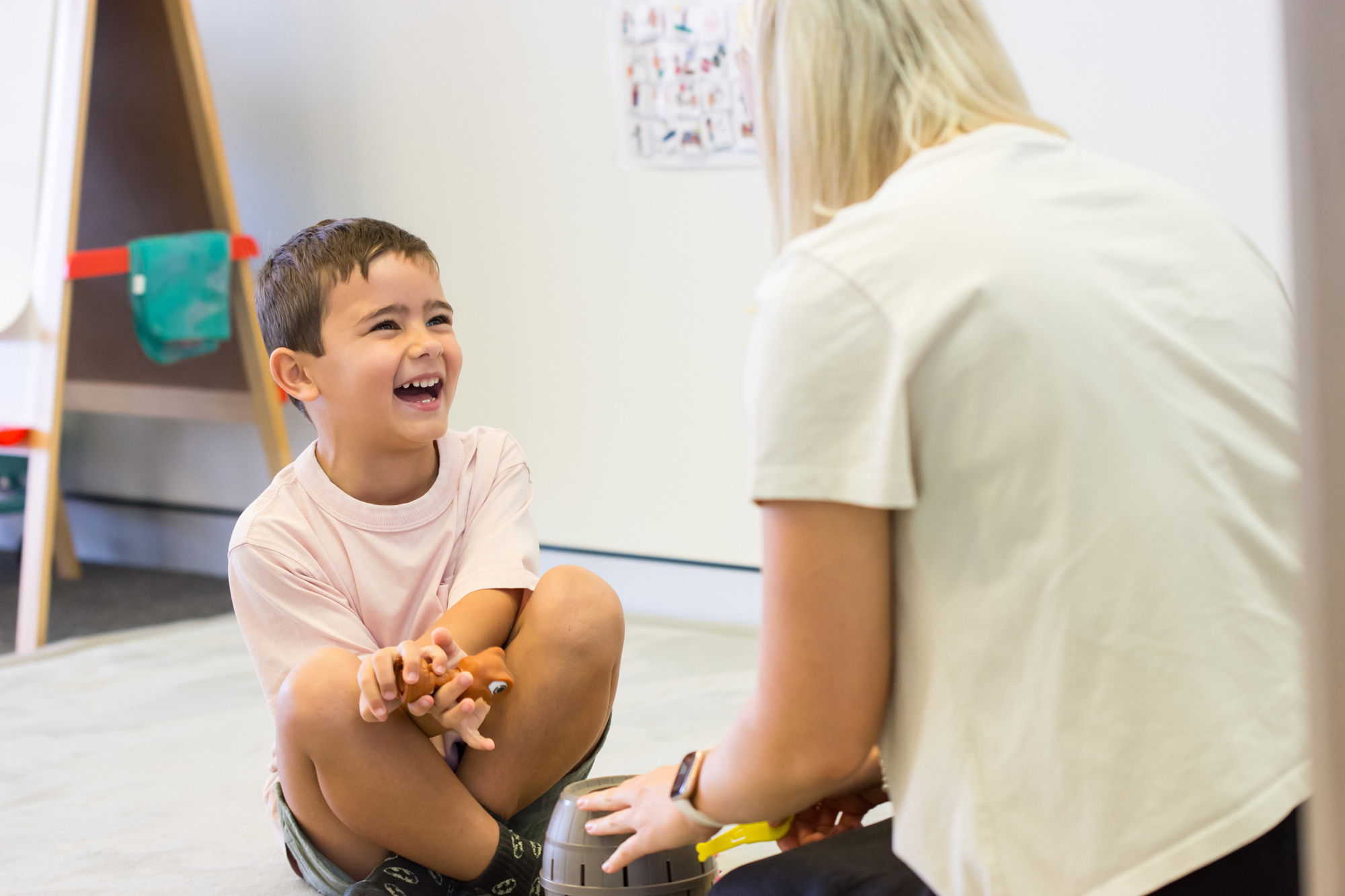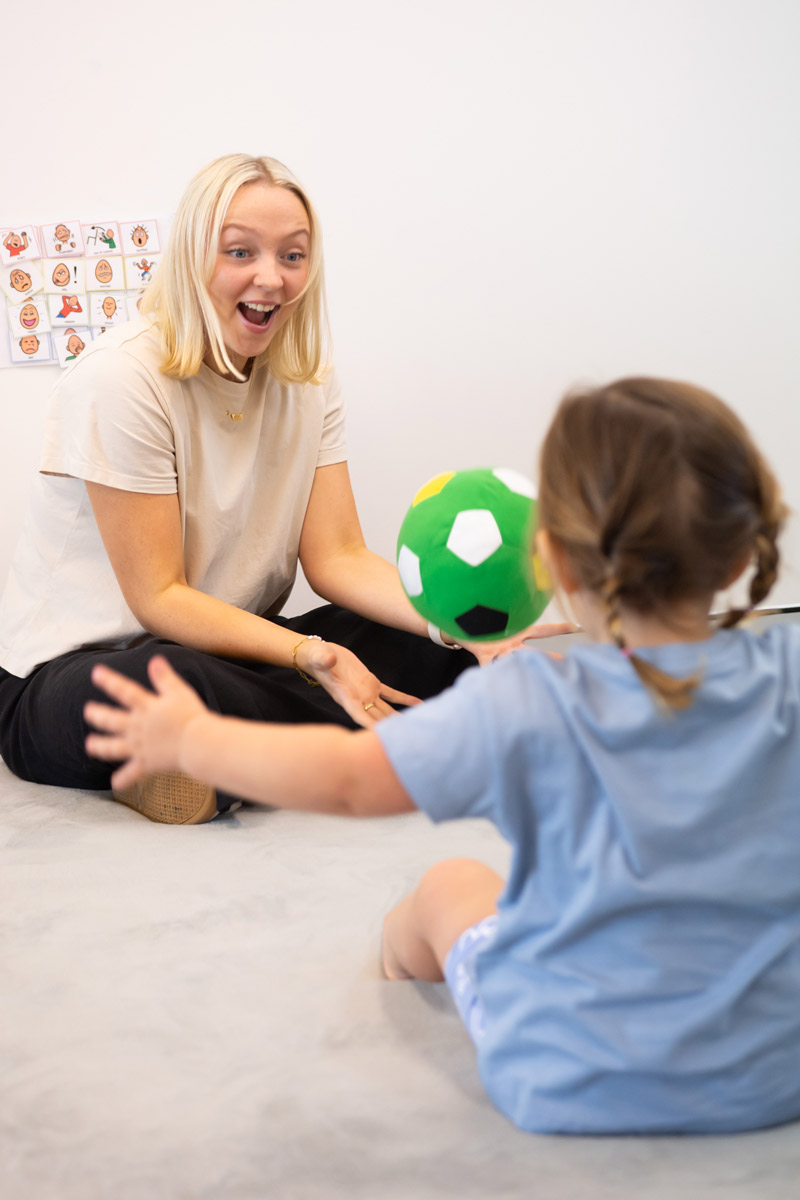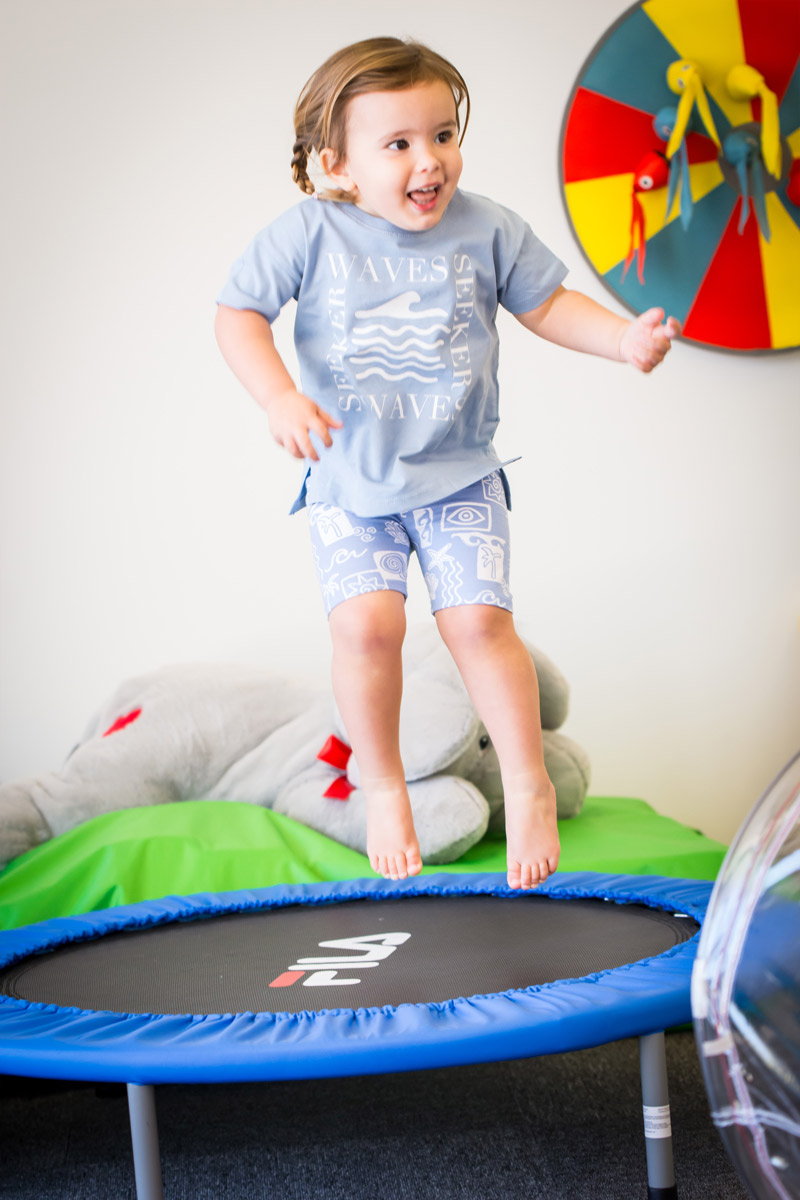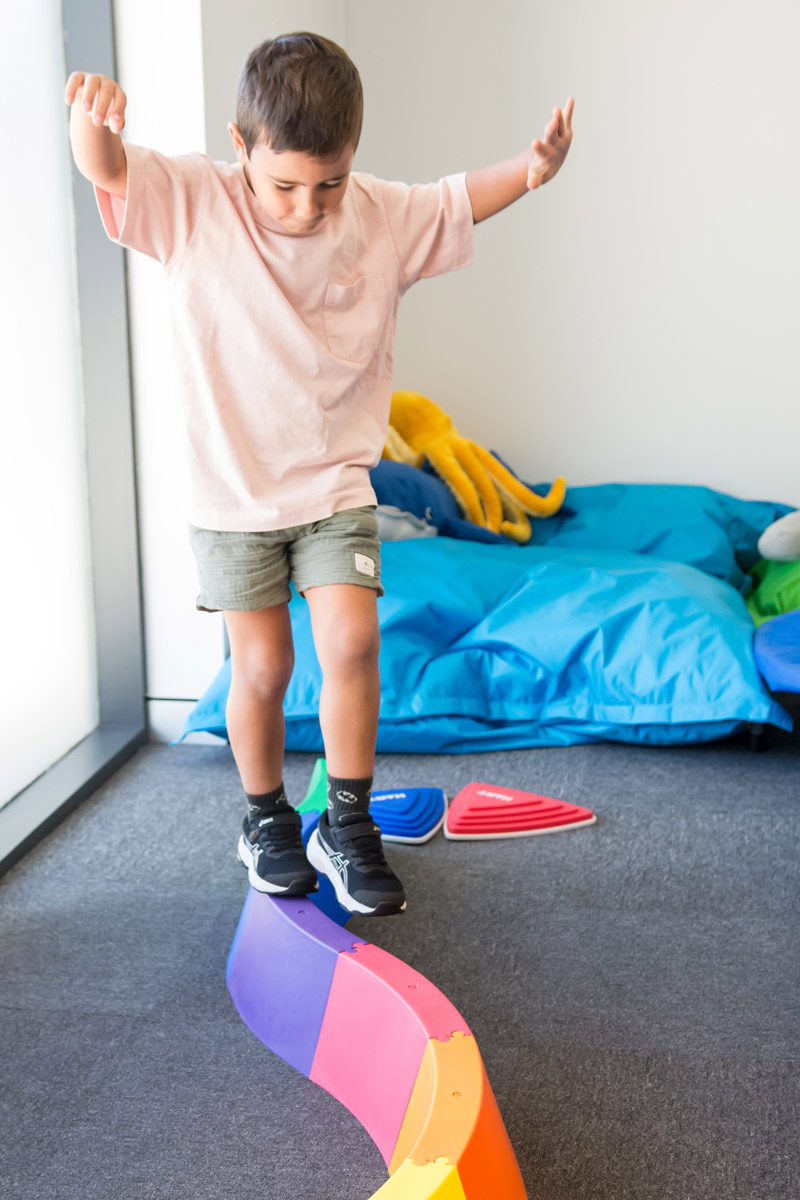
Occupational Therapy
How can an Occupational Therapist help my child?
Occupational therapists support children to engage and participate in day-to-day activities (occupations) including play, learning, dressing, toileting, eating, sleeping and movement. These occupations are essential to a child’s development to encourage independence and build confidence and purpose in their lives.
Key Support Areas
Play skills
Play is how children make sense of the world around them. Children learn and develop many skills through the trial and error of play that they will continue to use throughout their lifetime.
Self-care
Self-care skills are the everyday, routine tasks undertaken so that children become more independent in daily life as they grow and develop. These include dressing, eating, toileting, cleaning teeth, grooming etc.
Emotional regulation
Emotional regulation refers to a child’s ability to recognise, process and act upon the emotions that they feel within different situations.
Sensory processing
Sensory processing skills are needed to receive and respond to sensory information from the environment in a meaningful way.
Cognitive skills
Cognitive (thinking) skills are those needed by the brain to help think, learn, remember, reason and pay attention.
Fine motor skills
Fine motor skills involve small-muscle movements made with the hands and fingers. These include finger dexterity, wrist and forearm control, and hand strength.
Gross motor skills
Gross motor skills involve large (core stability) muscles of the body to achieve balance and body coordination.
Contact us if you would like more information about how an occupational therapist may be able to support your child.





